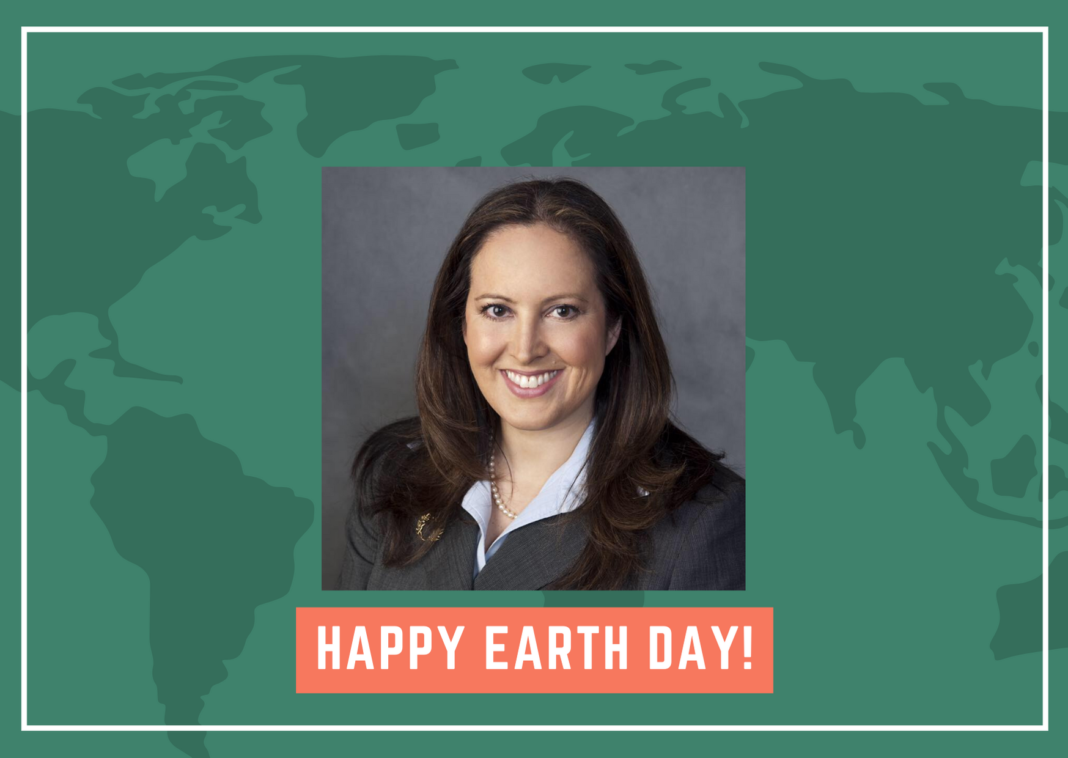When living in strange times like these, it’s understandable to have a hard time thinking about anything other than the pandemic we’re facing. It feels as though every aspect of our daily lives has been impacted by COVID-19: many of us are working from home and trips outside now involve facemasks and social distancing.
We’re adapting to a new normal – as temporary as we hope it may be – and taking the necessary steps to flatten the curve and save lives.
But it’s also important to remember that this is not the first global crisis that we’ve faced. In fact, it’s not even the only global crisis we’re facing right now, as the crisis of climate change is similarly impacting people across the globe.
This Wednesday, April 22, marks the 50th anniversary of Earth Day, started in 1970 by Senator Gaylord Nelson of Wisconsin. Sen. Nelson, frustrated with a lack of movement among environmental policies at the federal level, started Earth Day to activate Americans and pressure his colleagues in Congress into action.
At the time, tens of millions of Americans across the country organized, leading to the creation of the Environmental Protection Agency and the passage of the Clean Water and Clean Air acts.
But today President Trump and the federal government are reversing the course set by Senator Nelson and others, and we’re seeing a significant rollback of policies designed to protect our environment.
Despite being in the midst of a global pandemic, the Trump administration has found the time to reduce fuel efficiency standards, meaning cars will be allowed to emit almost a billion tons more carbon dioxide than before.
The irony of increased air pollution during a respiratory pandemic shouldn’t be lost on any of us.
These recent efforts to roll back environmental protections further underscore the importance of this year’s Earth Day, and while this April 22 is sure to look and feel different than any other in the past 50 years, that doesn’t mean that our work can stop.
There are several ways to celebrate Earth Day 2020 while still maintaining appropriate social distancing protocols:
- Plant Something: Plants inhale carbon dioxide and clean the air, so whether you have room for a big backyard garden or just the space for a single pot, get your hands dirty and plant something in the soil.
- Compost: Having each of your meals at home every day makes it easier than ever to compost leftover food scraps. And what better way to feed your new plant than with your own compost?
- Communicate: In our quarantined state, communication with others is key, so take some time to call and email your elected officials at the federal, state and local levels to demand that they support and enact policies that protect our environment.
The Coronavirus pandemic is a stark reminder of how interconnected we are as inhabitants of Earth. We are all experiencing the impacts of this global virus, which is making an all-too-real argument that our borders and divisions of race, class and religion are ultimately inconsequential when it comes to worldwide crises.
And yet when it comes to the crisis of climate change, the impacts of which will also be on a global scale, we too often choose to deny our reality and delay our action.
We must apply the lessons learned during the COVID-19 pandemic to the fight against climate change: to trust science and experts, to rely on data and its indisputable facts and to take the measures necessary – even though some will call them too drastic – to make a real difference and stem the tide of the crisis.
When we find ourselves on the other side of this pandemic, whenever that may be, we will undoubtedly be facing a new normal that will force us to evaluate everything: our lives, our businesses, our economies, our leaders.
Will we go back to business as normal, each retreating to our party lines? Or will we do what is difficult and take action against the climate change crisis that threatens to overwhelm us?
We are currently experiencing what it means to live through a global catastrophe. Let us have the foresight and the strength to take serious action on the threat of climate change before its impacts similarly overwhelm us.
Mariyana Spyropoulos, Commissioner, Metropolitan Water Reclamation District of Greater Chicago





